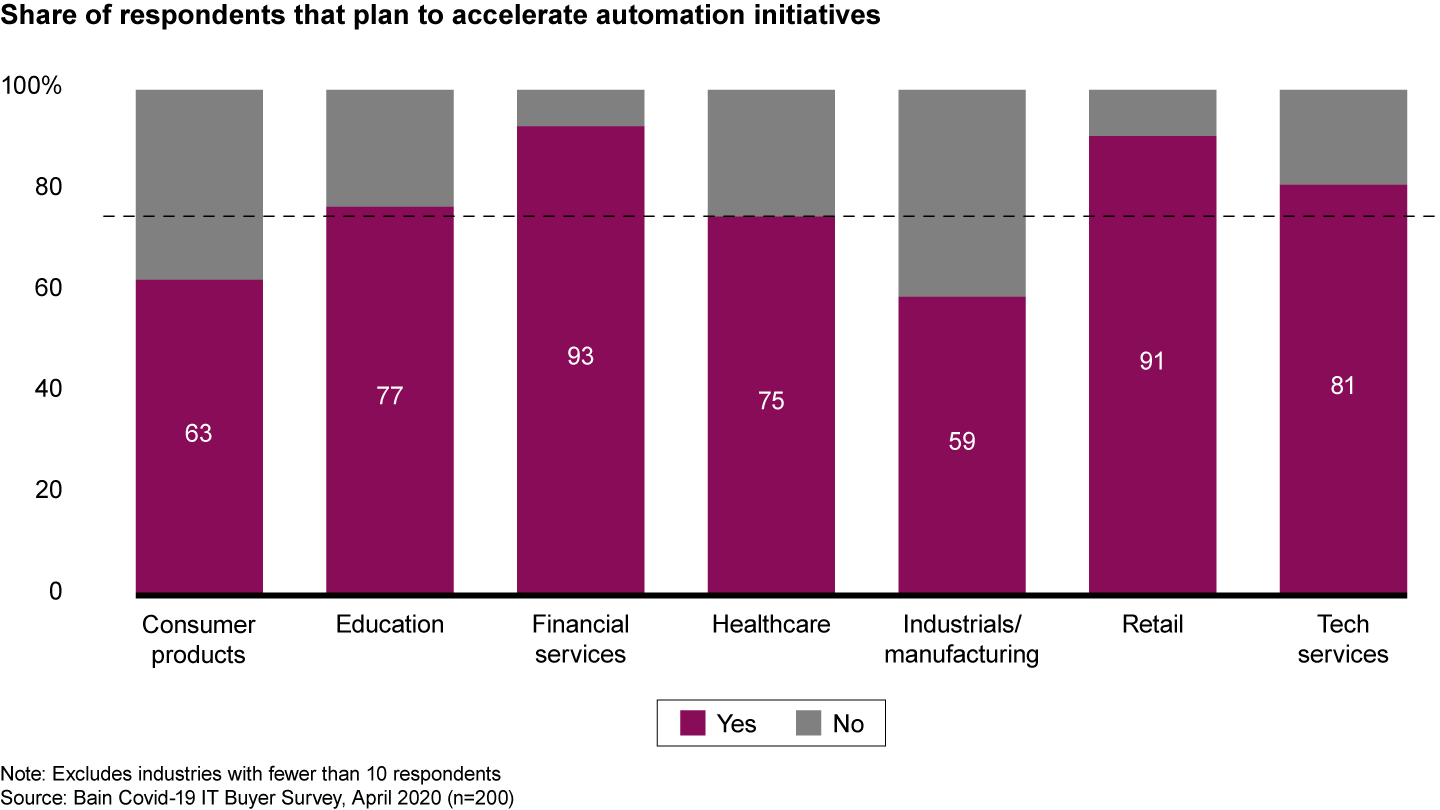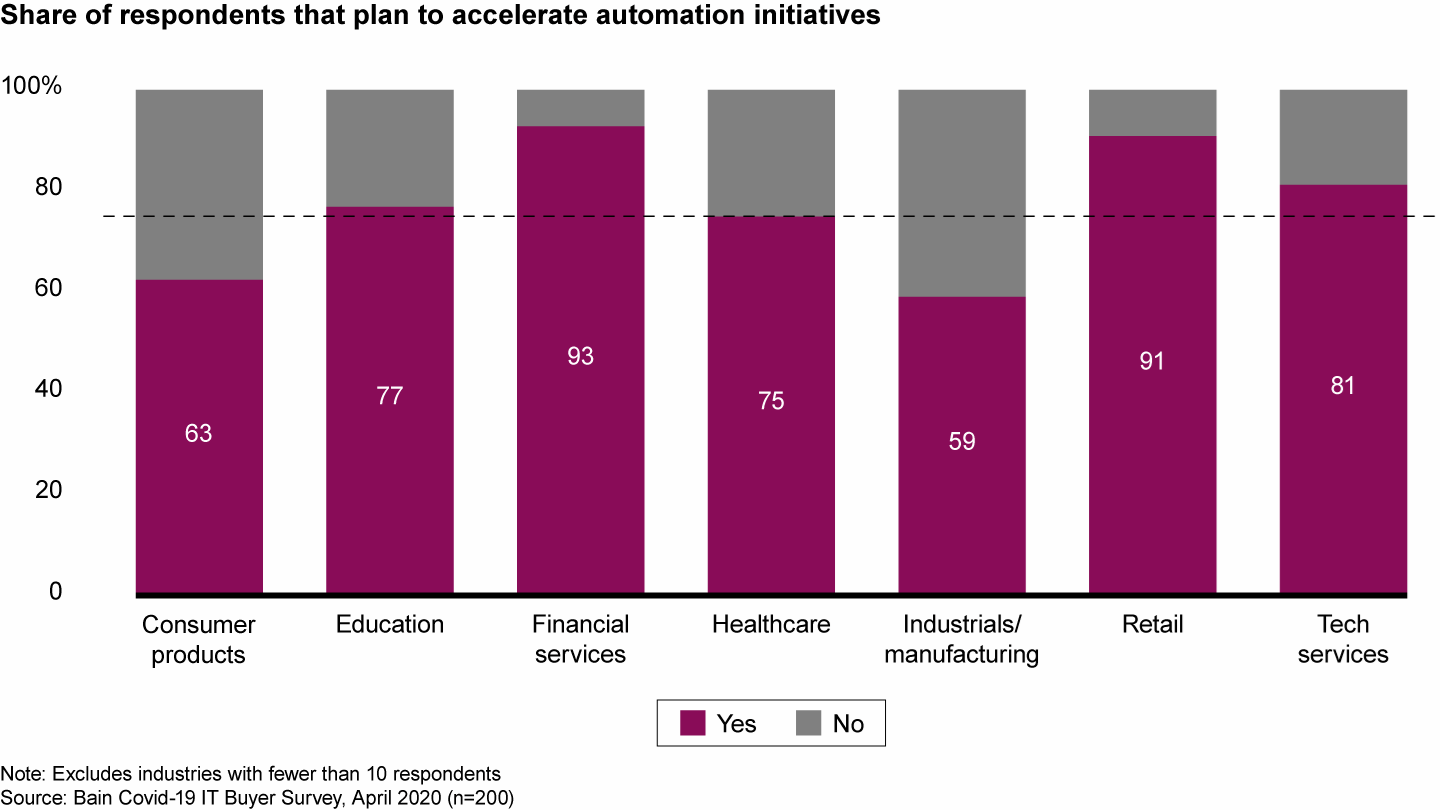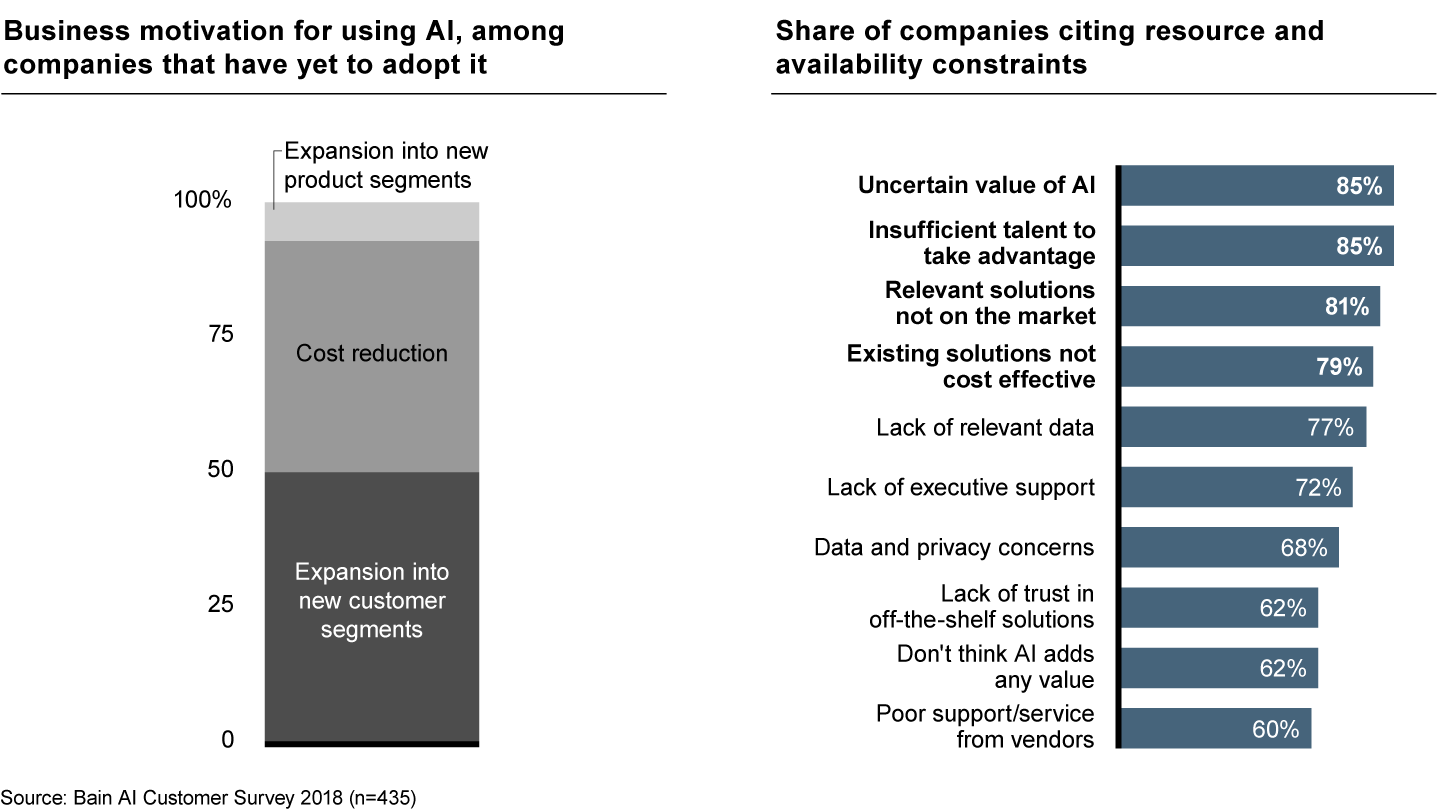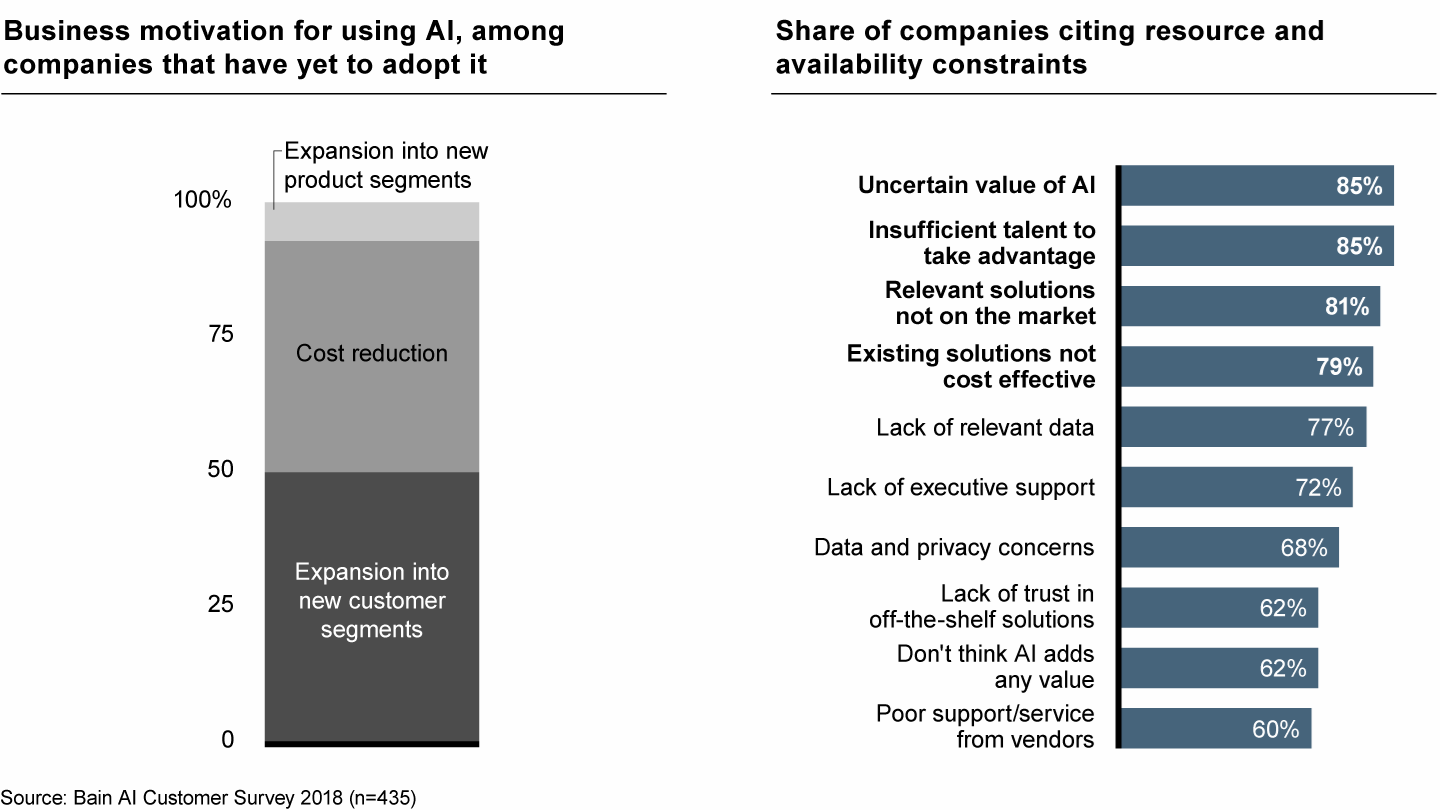Article

In the months ahead, as the effects of the Covid-19 lockdowns ripple through economies, nearly every business in the world will look for ways to reduce costs, conserve cash and make the most out of investments. Many will be reviewing investments in technology, to gain a better understanding of their potential to increase value for the business.
Among the digital technologies likely to come under this scrutiny are the growing number of investments in AI and machine learning (AI/ML). Even before the arrival of Covid-19 and the sudden economic crisis, many technology executives were already expressing uncertainty about their investments in machine learning, and dissatisfaction with the ways their organizations were adopting it. Since the pandemic took hold, many have told us they plan to increase investments in automation across the board, including those dependent on AI/ML (see Figure 1).
Three out of four companies plan to accelerate automation initiatives due to Covid-19


As ways of interacting with coworkers and customers are transformed, the importance of AI only increases. Digitalization is accelerating, and we’re generating and storing more data than ever―and with more data, AI tools can get even better. Accumulated learnings will increasingly need to come from summarized and curated data, instead of experiences. Automated tools will be ever more critical for things like monitoring service levels and securing our interactions, and they are likely to become a feature in every product that incorporates software―which is, increasingly, everything.
All of this indicates that a rapid acceleration in the pace of adoption of AI is imperative. So it’s a worrying finding that although many tech buyers and sellers understand the need and opportunity, they are unsatisfied with their progress thus far.
Bain research conducted in 2019 found that 90% of tech executives view AI and machine learning as priorities that they should be incorporating into their product lines and businesses. But nearly as many (87%) also said they were not satisfied with their company’s current approach to AI.
- 90% of technology executives say AI and machine learning are priorities that they should incorporate in their products
- 87% of technology firms are not satisfied with their use of AI today
Time and again, executives have told us that the return on investment―and achieving AI’s full potential―will be a long time coming. AI is complex to mobilize, and it can be challenging to get it to actually do what companies need it to do. Many executives don’t believe they have the talent on hand to make it happen without tailored third-party solutions that meet their needs (see Figure 2).
Executives would like to use AI to reduce costs and acquire new customers, but they’re uncertain about the ROI and cannot find the talent or solutions they need


What separates the leaders from the pack is their ability to make real changes in the way they get work done and integrate AI into products and processes across the organization, allowing them to differentiate themselves based on AI-driven insights. For example, in IT services, AI can help companies more accurately determine the right service-level agreement for an item. But companies have to operationalize how they take action on those insights. In customer care, AI can help prepare an agent with the right context and suggest resolutions to address a customer’s pain points, based on previous interactions and language-processing capabilities that can gauge a customer’s mood.
These leaders recognize that even under an accelerated schedule, making full use of AI will continue to be an ongoing, multiyear journey, and they’re not wasting any time getting started. They are putting in place the systems and processes for capturing data and distilling the relevant insights to address pain points. They are out in front, successfully developing their capabilities, getting better at drawing insights and operationalizing their abilities to use machine learning in their business, with a specific emphasis on understanding customer needs and opportunities for competitive differentiation. Top performers are taking what they’ve learned and scaling up, making machine learning an integral part of their solutions.
Not sure where you are in AI adoption? At this critical moment, every business leader should be asking these types of questions and creating an AI agenda to accelerate company progress:
- What does AI mean to my industry at this moment? To my business?
- What should our AI priorities be? How do we prioritize our AI agenda?
- What degree of change is required? How do I adapt our operating model?
- How do I show progress to stakeholders?
This is the first in a series of articles sharing Bain’s analysis of how winners have adopted and incorporated machine learning into their business processes and systems, and the types of lessons they’ve learned along the way.